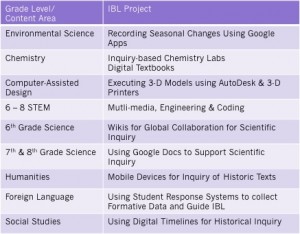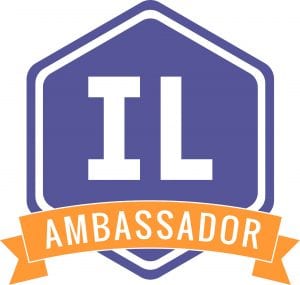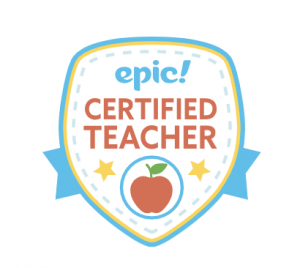Cultivating Pedagogical Innovation through Emerging Leaders
The Highland Falls – Fort Montgomery Central School District IBL21 initiative proposed to support improved student performance by assisting students, teachers and administrators in the following areas:
- Expanding the curriculum to embrace inquiry-based learning (IBL) and teaching.
- Integrating instructional technology for 21st century literacies and skills.
- Supporting teachers as pedagogical innovators.
The populations served by the project are the 100 faculty members and 975 students in the Highland Falls-Fort Montgomery Central School District.
In order to support the aforementioned goals, during Year 1 the District utilized grant funds to implement the necessary improvements to the network infrastructure so that students, teachers, and administrators could capitalize on computer and internet-based technologies for inquiry learning. In addition, funds were used to provide professional development for faculty for the support and practice in applying new pedagogical and technological innovations.
Throughout the project, the development of a Technology Leadership Team that included administrators, faculty, and technology personnel played an integral role in the progress of the initiative. This has included making decisions related to purchasing instructional technology and defining professional development. The Team members used this first year to research and identify possible technologies for classroom use and examine the potential classroom applications. Each member of the committee has identified an inquiry-based project that they initiated and implemented during the three years:
As we progressed from year one to year three the teachers actualized their research to engage students in the process of IBL to promote science literacy, global collaboration, and technological literacy, and serve as role models for the academic community. Many of the team members have presented their research at the New York State Associate for Computers and Technology in Education regional conferences.
A core group of K-8 faculty examined the science curriculum based on the framework for 21st century skills. However, with the shift in the standards and curriculum adopted by New York State, we created an integrated ELA/science curriculum aligned with the NYS ELA Modules for grades K – 5 mirror those skills highlighted in the framework for 21st century skills. A website was developed to house all of the information to support instruction for the K-5 science units; including an outline of the curriculum, web-based resources, science literacy texts and strategies, and scientific investigations. Two samples include: Biodiversity of the Amazon and Frogs Adaptations to Extreme Environments.
At the 6 – 12 grade levels, the teachers are continuing to redesign instruction based on the principles of inquiry, the scientific process, and the Next Generation Science Standards. The teachers are utilizing technology-rich learning spaces that include laptop carts, probe ware, digital white boards, document cameras, and student response systems, which enable students and teachers to interact with science content, engage in research, collect information, and organize formative data. In addition, two teachers have created a STEM curriculum for students in grades 6 – 8 around the themes of multi-media, coding, and engineering.
In addition, several teachers are connecting with classrooms in other regions of the world by using wikis and video-conferencing. Two wikis that were created include: Spiders in Space and The GRAIL Project. In addition, the faculty explored how digital tools could be used to support writing for inquiry-based learning how to use writing to share their thinking and the results of their explorations, while addressing the Common Core Writing Standards.
Findings indicate that where there was no statistically significant difference in student state exam scores over the years, in general by the end of the project in 2013 students had a significantly more positive attitude toward science and were more interested in learning science and pursing advance studies in science that in 2010. Overall students in 2013 have an acceptable level of the skills required for global collaboration, and acceptable level of technology literacy. Further, teachers in 2013 had both a significantly higher level of self-efficacy in using information technology than teachers in 2010, and a significantly more positive attitude toward integrating information technology into their science teaching than teachers in 2010.
While this project was initially conceived based on the use of inquiry-based learning for science, our preliminary qualitative research for goal #3 indicates that the application of inquiry-based learning has extended beyond science to other content areas. The result is that inquiry-based learning is becoming the nexus for integrated lesson design across the curriculum and facilitating the realization of the Common Core State Standards for College and Career Readiness alongside enhancing students’ learning. The teachers have developed complex learning environments by creating technology-supported inquiry-based learning opportunities, which were mainly characterized by problem solving, raising questions, and identifying ways to answer their questions.



Leave a Reply